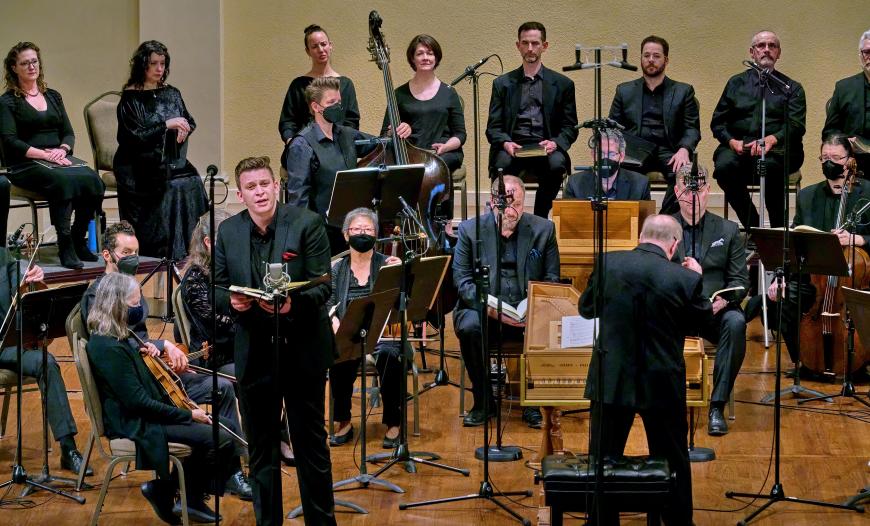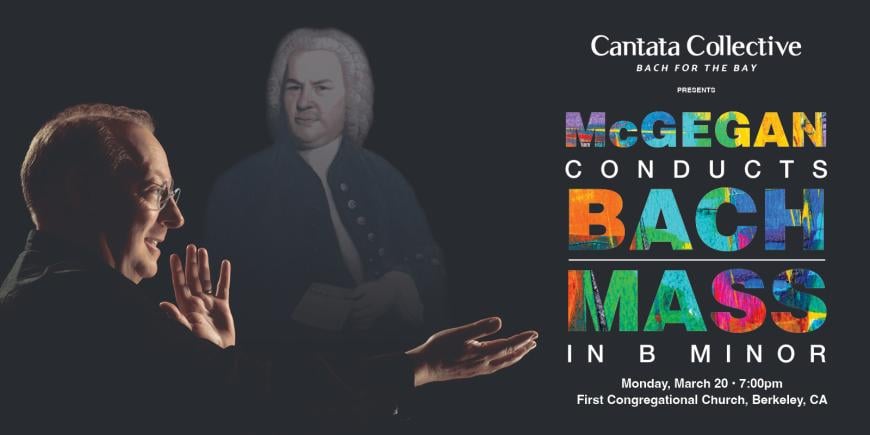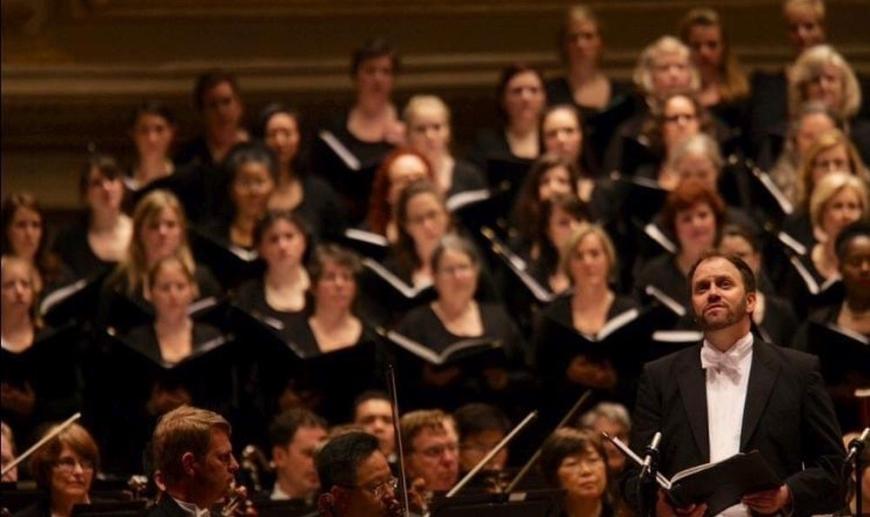
Cantata Collective, the Bay Area ensemble dedicated to J.S. Bach’s cantatas and major choral works, will perform and record the composer’s Mass in B Minor on March 20 at Berkeley’s First Congregational Church.
Unlike the announcement’s claim, the date is not the composer’s 338th birthday, but close enough. The “old style” date was March 21, but the Gregorian calendar, in effect for a century by Bach’s birth, places it on March 31.

The conductor is Nicholas McGegan, who is among the most devoted and experienced admirers and advocates of the Mass. He told SF Classical Voice:
I first played the B-Minor Mass nearly 50 years ago under Roger Norrington at the Utrecht Festival in the Netherlands, and I have conducted it many times since in both the U.K. and the U.S.
It is a work that never fails to amaze me. The range of musical styles from fugues that could almost have been written in the Renaissance to the most up-to-date is truly astonishing. The work seems to sum up the whole of Bach’s musical life. Indeed, the earliest movement was composed in 1714 and the last just before Bach’s death nearly 35 years later.
Bach never heard the Mass performed; the first complete performance was not given until about a century later.
For me, it is a joy and a great privilege once again to conduct this glorious masterpiece. I am so grateful to the Cantata Collective for giving me such a welcome opportunity.”
McGegan leads the Cantata Collective orchestra and chorus as well as a quartet of vocal soloists: soprano Sherezade Panthaki, alto Rhianna Cockrell, tenor Thomas Cooley, and bass Paul Max Tipton.
This spring also marks the launch of the Cantata Collective’s new partnership with Avie Records to record Bach’s five choral masterpieces — the Mass in B Minor, plus the St. John and St. Matthew Passions, the Christmas and Ascension Oratorios, and the Magnificat — over the next five years.
The first album Avie will release is the St. John Passion, which the Cantata Collective recorded at Berkeley’s First Congregational Church in March 2022.

Marc Schachman, co-founder and oboist of the Cantata Collective, notes that the recording initiative is a central component of the ensemble’s mission:
“Our aim is to provide music lovers across the world with fresh recordings of the major choral works of Bach — marrying musical interpretations of the highest caliber with superior audio quality. We’re thrilled to be working with our dear colleague David v.R. Bowles, the Grammy-nominated head of Swineshead Productions, to record each work in high-definition 3D immersive audio that creates a powerful ‘you are there’ listening experience.”
Founded in 2017, the Cantata Collective is driven by its commitment to perform all 209 of Bach’s extant cantatas for the public, free of charge. In performing these works, the ensemble aims to serve as stewards of this music, offering a varied and personal mix of context, perspectives, and dialogue with each work. Cantata Collective members bring decades of experience studying and performing this repertoire to the ensemble.
The group’s sixth season is made possible by grants from Benevity, the Chicago Community Trust, the Richard and Mary L. Gray Foundation, the Jewish Community Endowment Fund, the Richard M. and Susan L. Kaplan Philanthropic Fund, the KAVAH Fund, the Waverley Fund, and generous individual support.

From “inside the production,” tenor Thomas Cooley told SFCV:
The B-Minor Mass is the compendium of what music had been up until that point, using cantus firmus techniques and Renaissance counterpoint, combined with the highest of Bach’s “modern” late-Baroque chromaticism and counterpoint techniques, as well as a veritable cathedral of musical architecture.
Bach’s technical skill in this piece is supported in every facet by his spirituality and ability to distill musical gestures into emotional affects which move the heart and soul of both performer and listener.
For my part, the highlight of the piece comes toward the end when, following so many incredibly intricate and highly ornamental pieces, he brings the forces down to just the flute, continuo, and tenor for the Benedictus, set in a very beautiful, sweet B minor.
The Trinity is represented in music by the tenor, flute, and continuo with profound emotion and spirituality.
For me, this is what the magic of Bach is all about.”


